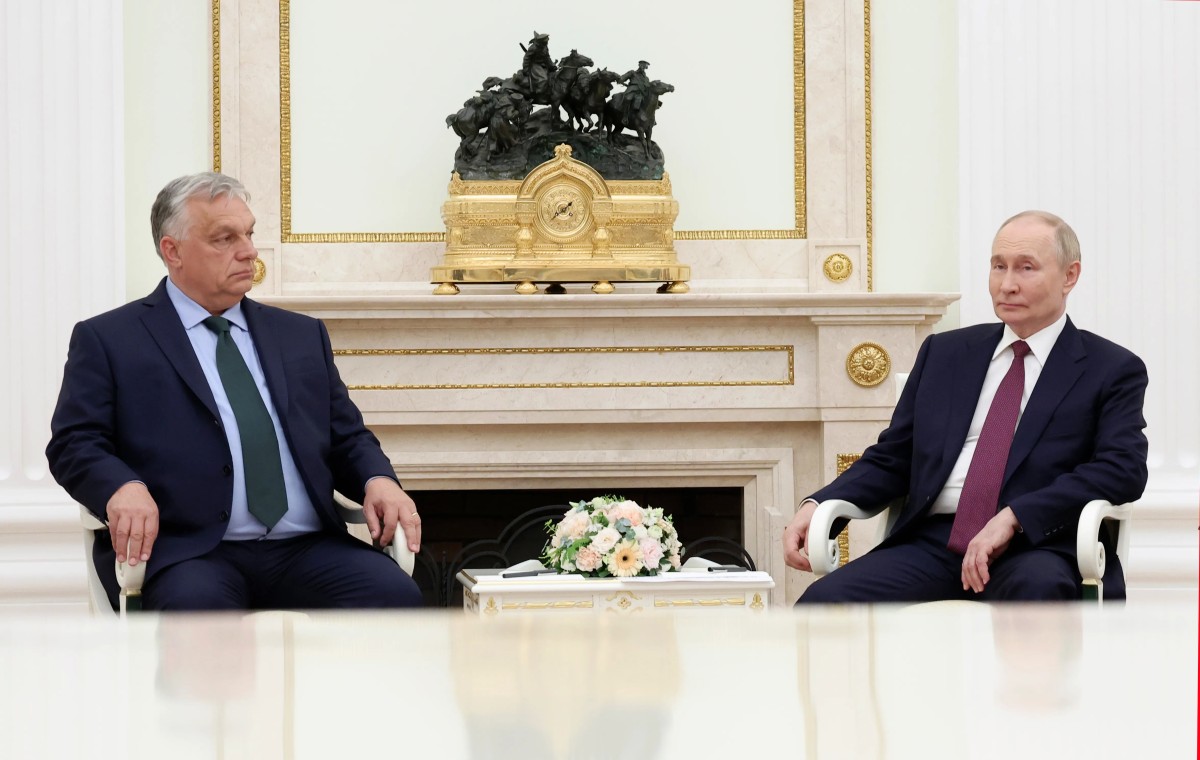July 7—On the same day July 5 that Hungary’s Prime Minister Viktor Orbán surprised the world by meeting in Moscow with Russian President Vladimir Putin, in the U.S., the legacy publisher Newsweek ran his op-ed, “The Point of NATO Is Peace, Not Endless War.” The publication was obviously timed with Orban's diplomatic offensive, of which the magazine had to have some advance knowledge, industry sources report.
Of furthernote, Newsweek brought Russian President Vladimir Putin’s June 14 conditions for ending the Ukraine conflict by creating a new security architecture for all of Europe, to the attention of Americans, by interviewing Russian Ambassador Anatoly Antonov on the subject. Then Newsweek provided him more space a week later to underline the matter of the address the misconceptions being spread. Newsweek now has a global circulation of more than 100 million viewers per month, according to industry sources.
Extracts from Orbán’s lengthy op-ed follow:
“NATO is approaching a watershed moment. It is worth remembering that the most successful military alliance in world history started as a peace project, and its future success depends on its ability to maintain peace. But today, instead of peace, the agenda is the pursuit of war; instead of defense it is offense. All this runs counter to NATO’s founding values…. The task today should be to preserve the alliance as a peace project.”
After a review of Hungary’s serious involvement with building up NATO as a non-offensive force over the 25 years, he continues:
“Hungary, as we have seen, is punching above its weight in developing its defense capabilities, participating in missions, and developing its military forces. But when it comes to the future of NATO, we are not in full agreement with the majority of member countries. Today ever more voices within NATO are making the case for the necessity—or even inevitability—of military confrontation with the world’s other geopolitical power centers. This perception of inevitable confrontation functions like a self-fulfilling prophecy. The more that NATO’s leaders believe conflict to be inevitable, the greater will be their role in precipitating it.
“Today the self-fulfilling nature of this confrontation prophecy is becoming increasingly apparent, with the news that preparations have begun for a possible NATO operation in Ukraine—and even high-level reports that troops from NATO member countries are already near the Ukrainian front….
“The great historian Arnold Toynbee argued that ‘Civilizations die from suicide, not by murder.’ As the strongest military alliance the world has ever known, it is not defeat at the hands of any external enemy that we should fear. An external enemy, if it has any sense, will not dare to launch an attack on any NATO member country. But we should very much fear our own rejection of the values that gave birth to our alliance. The purpose for which NATO was created was to secure peace in the interest of stable economic, political, and cultural development. NATO fulfills its purpose when it wins peace, not war. If it chooses conflict instead of cooperation, and war instead of peace, it will be committing suicide.”




